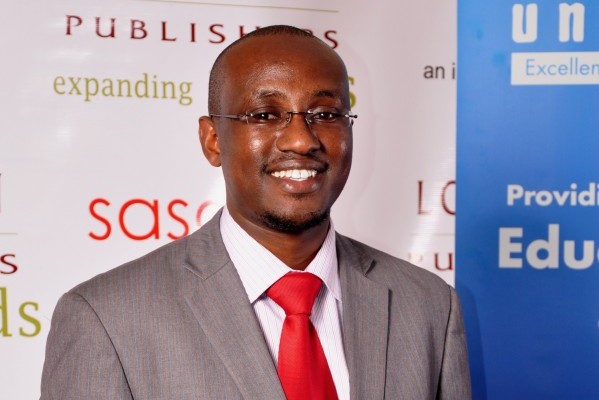He has been described as one of the finest writers of our times, a rising entrepreneur and business mentor. Well, meet Kinyanjui Kombani, the author of the highly acclaimed novel, The Last Villains of Molo.
You are one of the finest writers in Kenya, when and how did your literary journey begin?
Thank you for the compliment. I consider myself a work-in-progress. I started off as a comic artist back in primary school, inspired by the works of Frank Odoi and Paul Kelemba. I am a pretty good artist too! In between college holidays, I used to go round shops in December painting Christmas decorations and messages. Later on I tried my hand in prose fiction. My first attempt at prose was a story I wrote in high school, which got lost. During my second year at Kenyatta University, I wrote a couple of short stories that received much acclaim amongst my course mates, so I decided to write more.
Which book would you single out as your most profound work? Why?
The Last Villains of Molo is what I would consider my most profound work. It took a lot of time to bring the ideas together, and also to research. It was more difficult to write because (1) as a writer with Kikuyu blood in me, I had to be careful writing about a conflict with majorly pitted the Kikuyu against the Kalenjin. I had to balance my story and stick to the facts. (2). The issue of ethnic violence has never been resolved. We still have a lot of tribal animosity. My challenge was how to end the story, with a glimmer of hope and reconciliation, yet knowing that in real life the issue remains unresolved.
How many books have you written so far?
So far I have done 6 books. The Last Villains of Molo was my first novel, and is so far my most critically acclaimed piece of work. It has been a study text at Universities in Kenya and Germany, and has been mentioned at Postgraduate work in Harvard and University of Sussex. I have also written four children’s books; Wangari Maathai, Mother of Trees, We Can Be Friends, and Lost but Found (I say four because We Can Be Friends has two versions, Ugandan and Rwandan). ‘Carcasses’, a play I wrote for the Born Free Foundation, has since been shot to film as ‘Mizoga’ which has screened in five African countries to over 60,000 rural communities. ‘Den of Inequities’ is my most recent novel, is a study text at Daystar University.
Have you ever been rejected by a publisher?
Yes, I have been rejected by publishers. This is not a phenomenon in Kenya only. Even JK Rowling’s manuscript for the Harry Porter story was rejected more than 10 times. Alex Hailey is well known for the ‘Roots’ story, but before it was a success it was rejected very many times. All over the world, stories abound of rejection. As a writer, you have to live with it; you dust yourself up and move on to the next publisher. Even at my current level, my publisher will still reject my manuscript if it does not meet the standards.
Young writers say it is never easy to get published locally; local publishers take too long and hardly evaluate submitted works of fiction. Is this something you have faced as a writer?
A local publisher once told me they receive more than 30 unsolicited manuscripts every week. Hence the reason it takes very long to have their work evaluated. My advice to unpublished writers is to ensure their work is free of errors before submission. I do this by giving it to my peers and readers to read first and give me feedback before I submit. By the time it arrives at the publisher’s desk, it is pretty cleaned up and almost ready to go to press.
What are you working on now?
I am currently working on two novels and a personal development book. Soon to be released, also, is a series of reader aids for Standard Six Science pupils.
How profitable is writing books in Kenya?
If you are into writing books for the profit, you should look for another career. This is one industry where you venture because you have a story to tell, not for the money. Money comes later. There are many avenues for making money as a writer. You could venture into motivational talks, coaching other writers for money, charging appearance fees for events, and so on.
Do you agree that local publishers offer poor royalties to fiction writers?
This is a long drawn out debate. A reputable publisher will not ask the writer to chip in a single coin to the publication process. This means that publishers take 100% of the risk; there is a risk that after editing, typesetting, designing, storing, marketing, distributing, administration (paying salaries, machinery, staff etc.), your book may not sell a single copy. Publishers average royalties of 10-12%, after considering all the above mentioned processes.
Do you own any other businesses on the side?
My wife and I co-own a company called Old Gold Solutions, which provides plastic ID cards and branding solutions to schools, colleges, event organisers and small companies.
How long have you been running it?
This is our fifth year running.
What major challenges have you been facing as an entrepreneur?
One of the challenges I have faced as an entrepreneur is staffing. We work with very young staff, and there are the famous challenges of working with Gen Y – most of them are restless, overly ambitious (they want to be CEO in a year), and have the attention span that gives rise to errors. We also face other challenges like too much regulation; the number of licenses and taxes one has to pay is not conducive for business.
Talking of your career as banker, for how long have you been a banker? How did you begin and how have you risen through the ranks?
2015 is my tenth year in the bank. I joined as a Graduate Clerk. I have served in many capacities; as a Personal Financial Consultant, Business Financial Consultant, Relationship Manager, Team Leader for SME Banking and Learning Facilitator. I am currently a Learning Facilitator for East Africa
You recently won a ‘Top 5 Under 35’ at Standard Chartered Bank. What was it all about?
Last Year the bank ran a campaign to identify the Top 5 Gen Y (under 35). I was honoured to be nominated by my colleagues, considering that there are hundreds of staff in that age bracket.
Tell us about Molo Academy?
Over the last seven years, my friends and I have been involved in a project to raise the education standards at Molo Academy, our alma mater. Every year, we bring the top performers in KCPE/KCSE to a five star hotel, where we get various leaders to talk to them and inspire them. We have had Julie Gichuru, Caroline Mutoko, Ian Mbugua, George Adulu and the late Ben Muchemi speak with them. The result is that the school’s performance has been steadily rising.
What inspires to help make a change?
I come from a very humble family. I was brought up by a single mother who suffered from asthma. She was almost always in hospital. My school fees were paid by a family friend, without whom I would not be who or where I am today. Because of this background, I always feel the need to help when and where I can.
Looking back, what can you single out as your milestones and, or major accomplishments? Any awards?
In 2014, I was awarded Outstanding Young Alumni Award by Kenyatta University. This was a great accomplishment. In 2012, I was given the honour to address graduands at Kenyatta University’s Graduation ceremony. This again, was a great honour. In 2010, I won the Enablis Business Launchpad competition in the Best Business Plan in Business and Professional Services category, and was the 1st Runners Up, Overall Best Business Plan).
What drives you?
As my boss once said, we have all being chosen for a reason. We have to decide what legacy we will leave behind. That is what drives me.
What would you say to young people starting out in business or career?
As Steve Jobs said: Stay Hungry, Stay Foolish.










